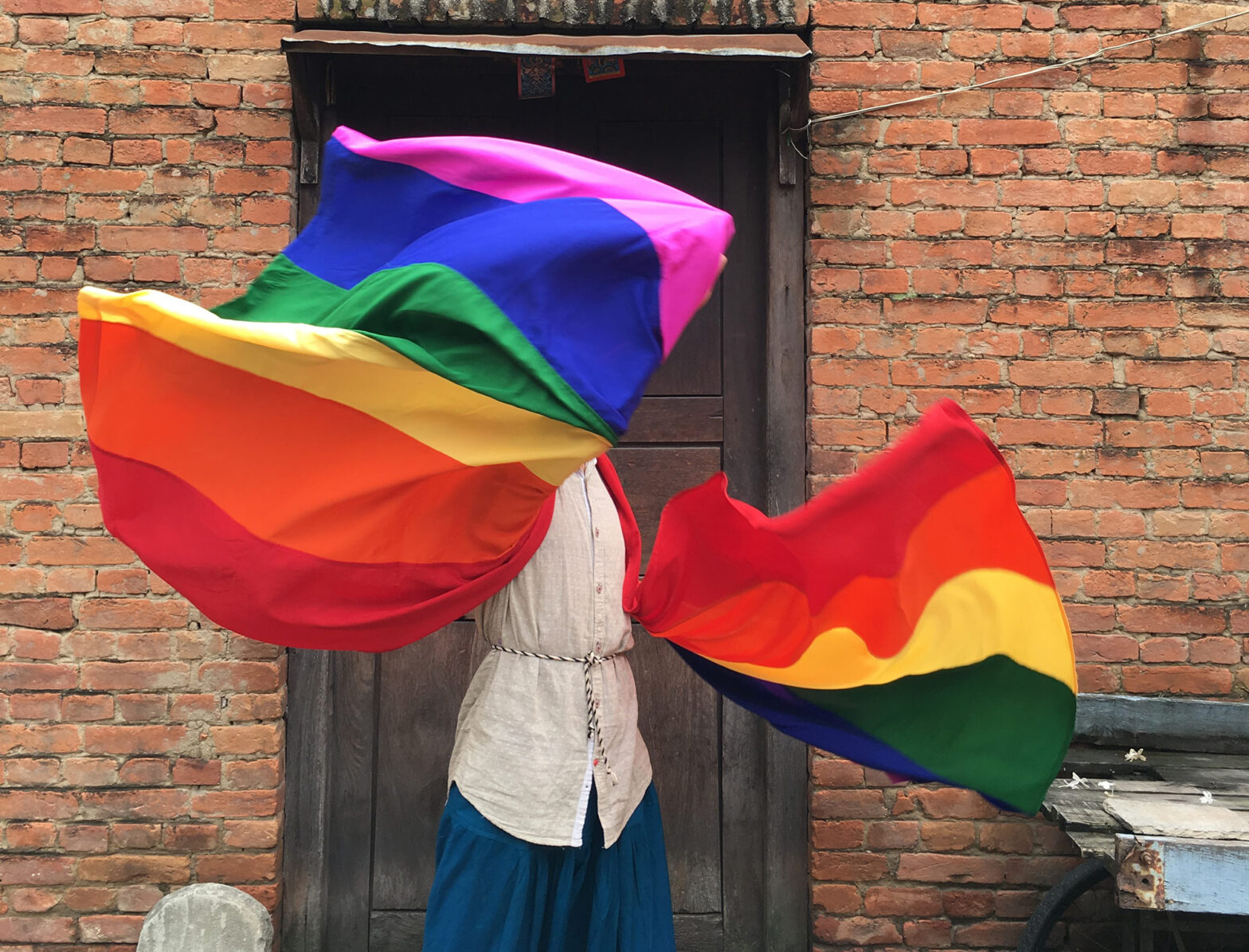
When Nepal held its last Census in 2011, respondents were asked to indicate the sex of people in their household as either ‘male’, ‘female’ or ‘third gender’. It was a first attempt to count the country’s lesbian, gay, bisexual, transgender, intersex and queer (LGBTIQ+) populations.
But when the exercise produced a number far lower than expected estimations, LGBTIQ+ organizations rejected it as misleading and requested that the number be stricken. Still, this rendered LGBTIQ+ populations invisible in official statistics, with few subsequent attempts to create laws, policies or programmes targeting this population.
To ensure that LGBTIQ+ peoples would be properly counted in the 2021 Census, under the Women Count project, UN Women supported Nepal’s Central Bureau of Statistics (CBS) to deliver training, produce a manual and consult with relevant stakeholders.
“It is important … that we do not leave [these people] behind, as the SDGs say. It is their right to be counted,” says Keshab Gautam, Director of the Population Section at CBS.
In 2019, UN Women and UNFPA organized a dialogue in Kathmandu between CBS, LGBTIQ groups and the Ministry of Women, Children and Senior Citizens.
Sarita K.C., Executive Director of the LGBTIQ+ rights advocacy group Mitini Nepal, was one of those invited to the dialogue and to subsequent discussions with CBS: “For the first time, government bureaucrats came to our office and asked us what word they should include for sexual and gender minorities on the household listing… The perception towards ‘third gender’ was really negative and associated with sex workers. We wanted a more neutral term.”
Consulted LGBTIQ+ groups ultimately opted for the more inclusive (and easily translatable) term “other”.
So, for the 2021 Census, the options were ‘male’, ‘female’ and ‘other’ for the household listing – for which 8,500 supervisors surveyed 6.8 million heads of households. Gautam said CBS opted for only the one simple question on sex because they didn’t think they could manage accurately counting more types of gender diversity in such a massive survey.
Even for that one question about sex, all supervisors and enumerators received gender equality and social inclusion (GESI) sensitivity training, to improve their understanding and increase the chances that LGBTIQ+ peoples would self-identify without fear.
“Especially during the national and provincial master trainings, we had LGBTIQ+ [communities] deliver the dedicated sessions and present their issues themselves,” explains Gautam. “We also prepared the supervisors manual with all LGBTIQ+ categories included. The [communities] themselves prepared a write-up for the manual. We trained our supervisors very well and instructed them that this is a very sensitive issue and not to judge.”
A dedicated GESI Manual was also developed, which included a comprehensive definition of LGBTIQ peoples, based on the recommendations of organizations during the dialogues. LGBTIQ+ supervisors and enumerators were also hired wherever they were qualified for the post.
“That was great! The positiveness of CBS was so good,” says K.C.
Still, Gautam says some supervisors encountered prejudice in the field, being “scolded or accused of demonizing” respondents if any households members were of the ‘other’ sex: “They would tell supervisors: ‘why are you asking such a question about us? There are no people like that in our household or in our community!’”
During monitoring, supervisors noted that few respondents were using the ‘other’ option.
Gautam says the numbers will undoubtedly be an underestimation: “It is a sensitive issue in Nepal and even all the LGBTIQ community are still hesitant to report their status. So, household heads may either not know the sexual orientation of all their members or may be reluctant to disclose it based on social stigma,” he says.
In light of this, K.C. says Mitini mounted an awareness-raising campaign, mobilizing LGBTIQ communities both online and on the ground, including through videos about the importance of self-identifying in the Census as a way to secure more rights.
And even if the final number is lower than estimated, LGBTIQ+ groups have agreed to accept it this time.
Still, in the future, K.C. hopes more types of LGBTIQ+ peoples can be included as options, and for ‘conjugal relationships’ to be among the options for listing marital status.
The household listing was rolled out between September and October 2021, followed by the main Census questionnaire in November. Data entry and analysis for reports are expected to take about a year.
He says Census data on women and ‘others’, will help Nepal monitor its progress on 58 SDG indicators and enable decision-makers to evaluate the need for targeted policies and programmes: “We don’t have other sources of data on [these communities] so they depend on the Census only.”
Gautam says CBS could conduct a separate survey to glean more targeted information about LGBTIQ+ peoples in the future, if there is available funding.
K.C. thanked UN Women for its support, saying it has had an impact for Nepal’s LGBTIQ+ communities: “Women’s civil society organizations were not that strong when I joined Mitini. But UN Women and the SDGs have made such a difference. They have been so supportive and hired LGBTIQ+ staff and organized that dialogue and have been directly involved in the Census process. And they insist for government to include LGBTIQ+ voices. UN Women has been raising the voices of diverse women … They give platforms and opportunities to have our voices heard.”
Note: UN Women promotes equality for all people across the broad spectrum of sexual orientations, gender identities, gender expressions and sex characteristics, and has a dedicated global LGBTIQ+ Rights Specialist. Read her Take Five.